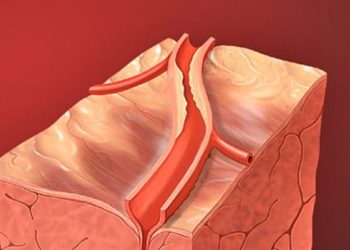ADHD associated with increased mortality rates
1. In a cohort of nearly 2 million individuals in Denmark followed from birth for a maximum of 32 years, attention deficit hyperactivity disorder (ADHD) diagnosis was associated with an increased mortality rate more than twice as high as in those without ADHD, with accidents as the most common cause of death.
2. Increased risks of mortality were seen in individuals diagnosed with ADHD in adulthood compared to childhood, as well as in those with comorbid oppositional defiant disorder, conduct disorder, or substance use disorder.
Evidence Rating Level: 1 (Excellent)
Study Rundown: Attention deficit hyperactivity disorder (ADHD) is associated with other psychiatric disorders and factors that may increase mortality, such as substance use disorder, oppositional defiant disorder, conduct disorder, increased risk of traffic accidents, and criminality. However, there has not been adequate research showing a link between ADHD and increased mortality. This study examined all-cause mortality in a nationwide cohort of almost 2 million Danish individuals with ADHD, as well as the added effect of comorbid oppositional defiant disorder, conduct disorder, and substance use disorder.
The results of this study showed individuals diagnosed with ADHD had mortality rates more than twice as high as those without ADHD, with accidents as the most common cause of death in those with ADHD. Additionally, increased risks of mortality were seen in individuals diagnosed with ADHD in adulthood compared to childhood, as well as in those with comorbid oppositional defiant disorder, conduct disorder, or substance use disorder. Females with ADHD were also associated with a higher mortality rate ratio than males with ADHD. Strengths of this study include that the cohort contained all children born in Denmark from 1981-2011, with almost complete follow-up for up to 32 years, which reduced bias. Limitations included that ADHD diagnosis in Denmark is more restrictive to more severe forms of ADHD, so the results may not be as generalizable to populations with a higher prevalence.
This study was supported by a grant from the Lundbeck Foundation
Click to read the study in The Lancet
Relevant Reading: Mortality, ADHD, and Psychosocial Adversity in Adults With Childhood ADHD: A Prospective Study
In-Depth [prospective cohort]: All children born in Denmark between 1981 and 2011 were included in this study, with 1,922,248 individuals followed-up to a maximum age of 32 years. 32,061 (8,478 [26.4%] females and 23,583 [73.6%] males) individuals with ADHD were included, with 5,417 (16.9%) who had comorbid oppositional defiant disorder and 3,946 (12.3%) who had comorbid substance use disorder. The Mortality Rate Ratio (MRR) was calculated for individuals with and without ADHD and adjusted for calendar year, age, sex, family history of psychiatric disorders, maternal and paternal age, and parental educational and employment status.
During the follow-up period, 5,580 individuals died, including 107 individuals with ADHD, resulting in an all-cause mortality rate of 5.85 per 10,000 person-years in those with ADHD compared to 2.21 per 10,000 person-years in those without ADHD, with an adjusted MRR of 2.07 (95% CI 1.70-2.50; p<0.0001). The most common causes of death were unnatural causes, especially accidents. Age at first diagnosis of ADHD significantly affected the MRR (p<0.0001). The highest mortality rates were seen in those 18 years or older (adjusted MRR 4.25, 95% CI 3.03-5.78, p<0.0001) compared to 1.58 (1.21-2.03) in those aged 6-17 years, and 1.86 (0.93-3.27) in those aged 1-5 years. Comorbid oppositional defiant disorder, conduct disorder, or substance use disorder were also associated with significantly increased risks of mortality (adjusted MRR 8.29, 95% CI 4.85-13.09). Additionally, females with ADHD had a higher MRR than males with ADHD (MRR 2.85, 95% CI 1.56-4.71 vs. 1.27, 0.89-1.76).
Image: PD
©2015 2 Minute Medicine, Inc. All rights reserved. No works may be reproduced without expressed written consent from 2 Minute Medicine, Inc. Inquire about licensing here. No article should be construed as medical advice and is not intended as such by the authors or by 2 Minute Medicine, Inc.







